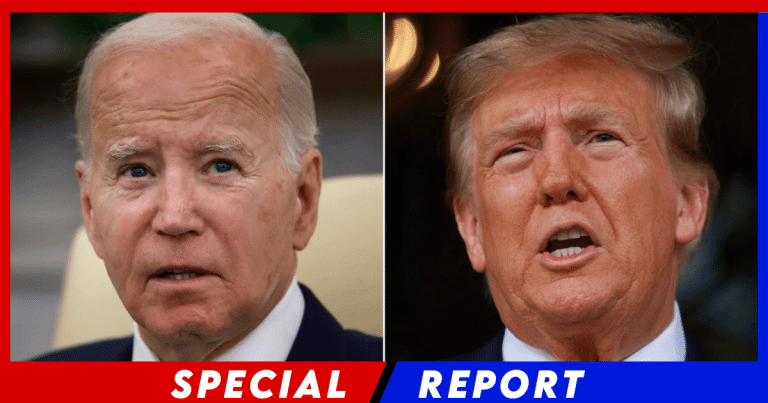
America’s industrial might, once the envy of the world, faces a critical moment as foreign interests attempt to claim one of our most iconic manufacturers. The story of US Steel isn’t just about business. Instead, it’s about American independence, national security, and the future of domestic manufacturing.
For generations, US Steel has symbolized American industrial power. Founded in 1901 as the nation’s first billion-dollar company, it helped build the skyscrapers, bridges, and military equipment that made America the world’s leading superpower.
Now, this pillar of American manufacturing stands at a crossroads, with profound implications for our national security and economic independence.
Biden Makes Huge Move With Trump’s Support
President Joe Biden announced on Friday, January 3, 2025, that he will block the proposed $14.3 billion acquisition of US Steel by Japanese firm Nippon Steel. In doing so, he cited national security concerns. In a historic agreement, President-elect Donald Trump had previously vowed to prevent the deal, declaring “I am totally against the once great and powerful U.S. Steel being bought by a foreign company.”
“It is my solemn responsibility as president to ensure that, now and long into the future, America has a strong domestically owned and operated steel industry,” Biden said in his official statement. The decision reflects growing bipartisan concern about maintaining critical American industrial capacity under domestic control.
The United Steelworkers union, which recently endorsed Trump for president, praised the decision. The union had consistently opposed the deal, arguing it would threaten American jobs and domestic supply chains.
“We have no doubt that it’s the right move for our members and our national security,” the union stated.
Trump’s vision for revitalizing US Steel centers on domestic reinvestment rather than foreign ownership.
“Through a series of Tax Incentives and Tariffs, we will make U.S. Steel Strong and Great Again, and it will happen FAST!” Trump declared on Truth Social. This emphasized his commitment to American manufacturing.
The implications run deepest in Pennsylvania’s industrial heartland, where US Steel maintains major operations. Senator John Fetterman (D-PA), whose home still sits across from US Steel’s Edgar Thomson plant in Braddock, voiced strong opposition to foreign ownership.
“Not one resident has approached me and said we got to make this happen. Not once,” he said.
Japan Responds
However, the blocked deal raises concerns about future foreign investment in American companies. Japanese industry minister Yoji Muto expressed disappointment, warning it could affect Japanese-American business relations. Nippon Steel and US Steel jointly condemned the decision as “a clear violation of due process” and vowed legal action.
Industry analysts point to significant challenges ahead. US Steel has reported nine consecutive quarters of declining profits amid global industry pressures. Nippon Steel had promised $2.7 billion in investments to modernize aging facilities – capital that must now come from other sources.
Yet supporters of the decision argue that national security considerations must take precedence over short-term financial gains. Indeed, the steel industry remains crucial for military equipment, infrastructure, and supply chain resilience – factors that become increasingly important in an unstable global environment.
Trump’s proposed solution combines protective tariffs with tax incentives to rebuild domestic capacity, an approach that resonates with many workers and communities dependent on the steel industry. The Steelworkers’ endorsement cited his previous success in “saving the steel industry with tariffs.”
As America faces increasing global competition and supply chain vulnerabilities, this vital national security question emerges: Can we maintain critical industries under American ownership while keeping them globally competitive? The answer may determine not just the future of US Steel, but the fate of American industrial independence itself.
For conservative Americans who believe in strong national security and domestic manufacturing capability, the protection of strategic industries like steel production remains essential to maintaining American sovereignty and economic independence. The unprecedented alignment between Biden and Trump on this issue suggests that, regardless of political differences, some principles of American industrial strength transcend partisan division.
Key Takeaways:
- American Industrial Independence: Both Biden and Trump recognize steel production as crucial for national security.
- Worker Protection: Steelworkers union backs decision, citing job security and domestic production concerns.
- Economic Sovereignty: Decision signals shift toward protecting strategic American industries from foreign control.
- Conservative Victory: Rare bipartisan agreement validates America First manufacturing policies.
Sources: The Post Millennial, Reuters, CBS News, CNN


